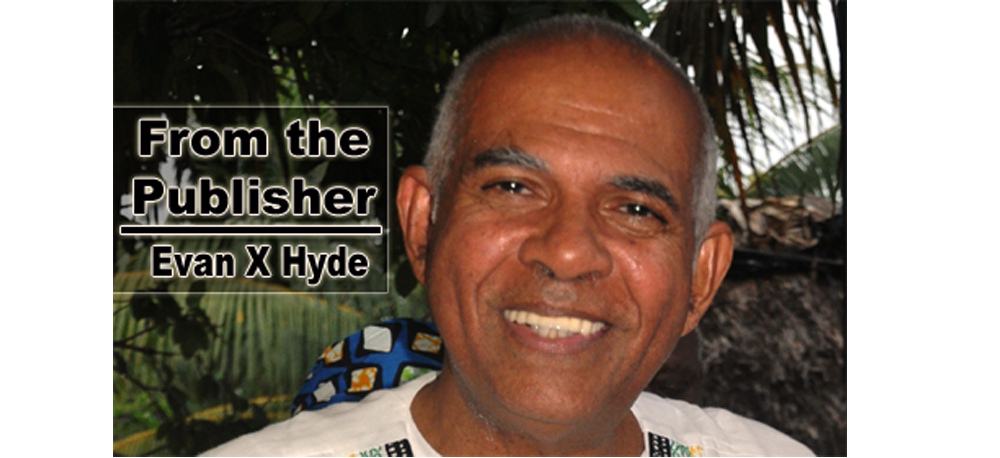With the benefit of hindsight, I think we can say that cultural hegemony over British Honduras/Belize moved from Great Britain to the United States when the school “summer” holidays here were arbitrarily changed from the sunny, breezy months of April and May to the wet and mosquito-troubled months of July and August. This change took place in 1964, just a few months after Britain had granted British Honduras self-government in January of that year.
I put quotation marks around “summer” in the previous paragraph because this was not a word in the Belizean vocabulary back then in the 1960’s: “summer” was how the Americans described their long school holidays. In America, they have four seasons — fall (autumn), winter, spring, and summer.
In Belize we have adopted the “summer” description for our long school holidays, just as we have adopted so many other things from our mighty northern neighbour.
In 1962, the United States hosted a conference in Puerto Rico to have the United Kingdom and Guatemala discuss the Guatemalan claim to British Honduras which was being pushed by the then President of Guatemala, Ydigoras Fuentes, with the support, he later claimed, of the John Kennedy/Bobby Kennedy American government of 1961-1963.
Four Belizeans attended that conference, all from the ruling People’s United Party (PUP), but only as “observers.” These were George Price, Albert Cattouse, Louis Sylvestre, and W. H. Courtenay. The Opposition National Independence Party (NIP), whose leadership had been taken over in 1961/1962 by Philip Goldson, was ignored. (The PUP held all 18 seats in the House of Representatives in 1962.)
The PUP was very popular and very powerful in those years. So that, they announced the change of school holidays in early 1964 on Radio Belize, the government monopoly radio station, with absolutely no public discourse on the matter. The ruling PUP just declared the change, and that was that.
For my family, the change was almost traumatic, one huge reason being the fact that fishing around our family caye, nine miles south of Belize City, was much better in April and May than in July and August, not to mention the weather conditions themselves.
The holiday move from April/May to July/August meant that our school calendar now coincided with that of the United States.
Almost all of the Roman Catholic missionaries who taught us, the Catholic Church running the majority of schools in 1964, both primary and secondary, were Americans, so the change in Belize’s school calendar would have been convenient for them, I believe.
When I began this newspaper in August of 1969, I spent many years complaining about the change in our school holidays, but I was completely ignored. Eventually, I had to give up that crusade. A few months ago, I heard an anonymous caller on a KREM Radio talk show express basically the same views I had done for two or three decades after 1964, but he himself soon gave up on his mission.
Before the 1964 change of school holidays, many Belizean families took their children to the cayes and the countryside for the eight-or-ten-week break. Our children learned to swim, fish, hunt, and farm. We absorbed Belizean culture. After the change in holidays, Belizean families who could afford it took their children to vacation in the American cities where many of their relatives had migrated after Hurricane Hattie in 1961.
The great Sibun River empties into the Caribbean Sea about six miles south of Belize City along the coast. About three miles further south, there is a huge lagoon named Northern Lagoon, which has been a vacation spot for Belizean families for many decades. Further south is the Southern Lagoon, where can be found Gales Point Manatee, which is about 18 miles south of Belize City.
This is information I have recently acquired from one of my younger brothers, Colin. I have never been to Northern Lagoon, and I regret that much. The conversation between myself and Colin began when he was attempting to locate for me the David Gegg cruise terminal (Port of Magical Belize), the third of the proposed cruise ship terminals in the area which would be delineated by Belize City, Stake Bank, Spanish Caye/Robinson Point, and, in the case of the Gegg terminal, the coast between the two lagoons to which I have referred.
My regular readers will probably have noted that I have had nothing to say about this triple cruise terminal business. I think that the cultural hegemony change to which I referred in the first paragraph, was greatly exacerbated by the coming of television here, in 1982 thereabouts. It seems to me that the proliferation of motor vehicles and then the coming of the internet, social media, smart phones, and the like, have also essentially cemented a change in Belize from the days of 1964, a change which is massive. This is about time as a concept, about our new Belizean generations, but it is also about the change from British to American hegemony.
That change began, I submit, with the change from April/May to July/August in our school holiday months. The Belizean people had absolutely no say in that decision. It was never discussed, only announced. Perhaps Don Hector knows something the rest of us don’t.

